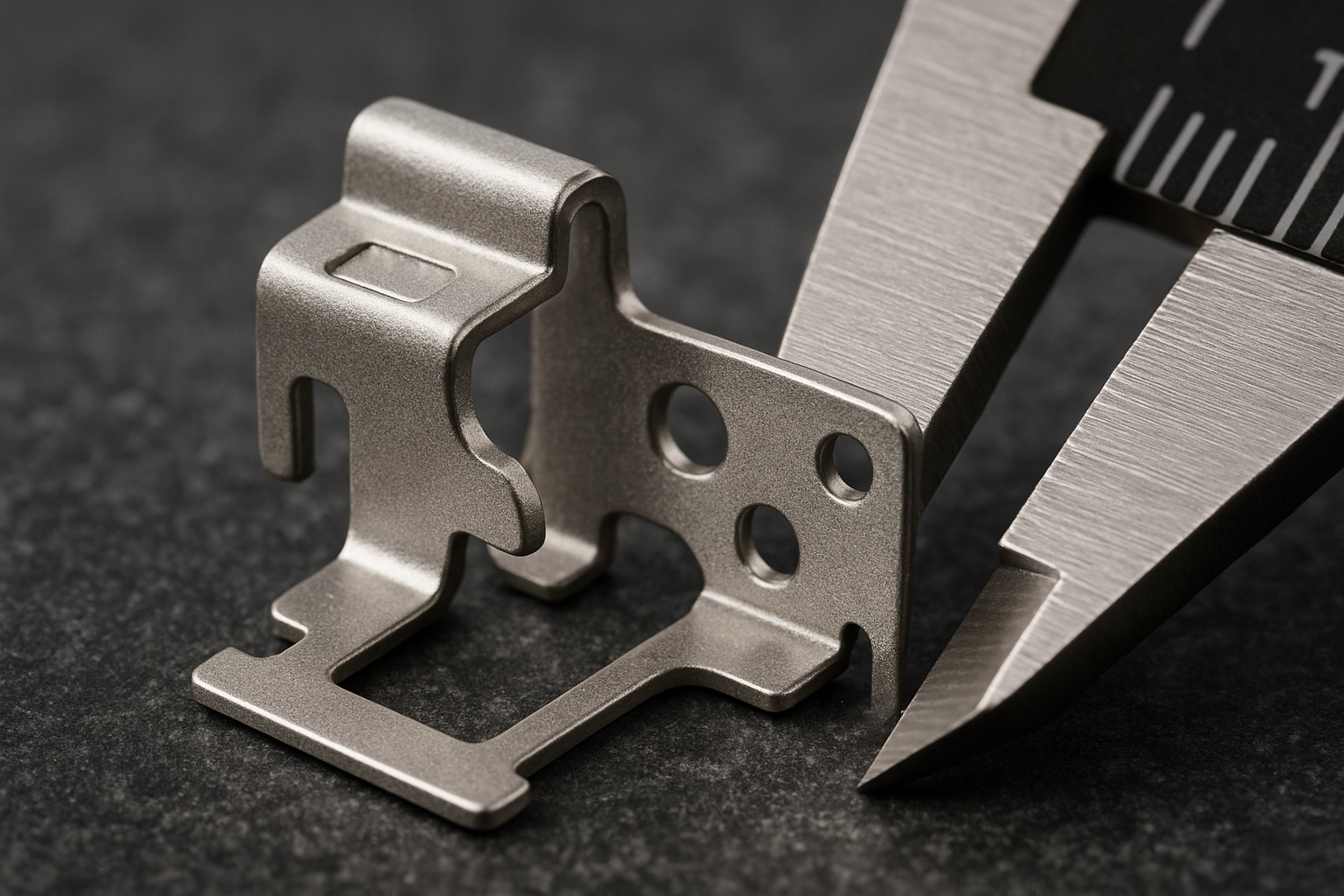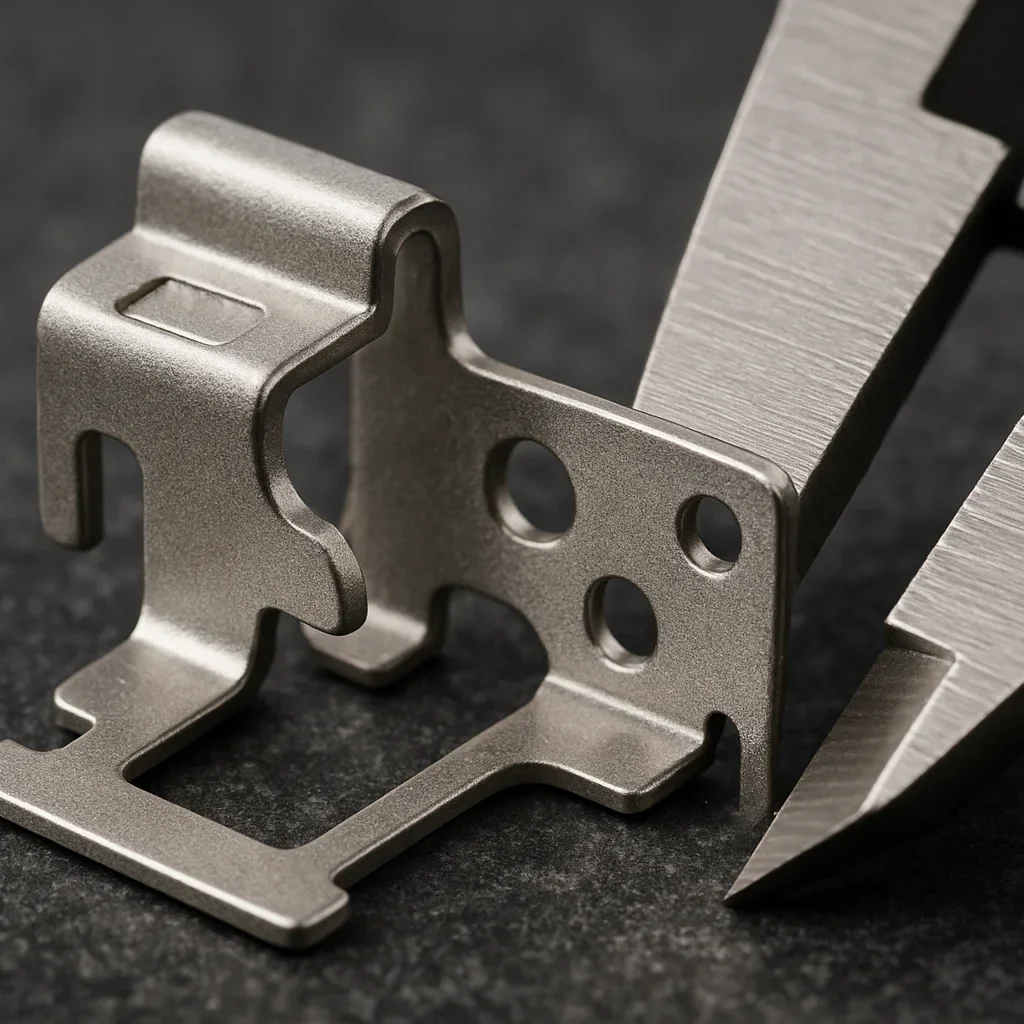

Press Component
Nexams Leading the Way in Press Component Engineering and High-Performance Manufacturing Solutions
Press components are fundamental parts produced through shaping processes using press machines that form materials into specific shapes, profiles, or cutouts. These parts serve as vital contributors in industrial manufacturing, especially within the dynamic realm of metal fabrication. Trusted by a wide range of Vendors and Manufacturers, and chosen frequently by local Suppliers for their consistency, each press component is crafted with integrity and precision. Nearby production facilities rely on press components for their ability to meet repeatable results while offering efficient and ethical solutions backed by strong Support networks.
A press component is made by applying controlled pressure, often involving dies and punches, to mold a material into a usable form such as brackets, housings, or structural components. The ethical partnership between Suppliers and local Manufacturers ensures that every stage—from die design to production—is aligned with quality expectations. Nearby Vendors contribute with tailored press solutions, and trusted Suppliers provide Support to uphold durable standards across industries including automotive, aerospace, and electronics.
From stainless steel body panels in automobiles to electronic enclosures and aerospace supports, press components are relied upon for their consistency, speed, and strength. The collaboration among nearby Vendors, technical Suppliers, and responsible Manufacturers ensures components perform as expected, even in high-demand settings. With advanced Support systems and experienced local guidance, Nexams helps customers make informed decisions with confidence and care.
Typical press component fabrication methods include stamping, forging, coining, bending processes, and deep drawing. Each method benefits from the involvement of knowledgeable Suppliers and nearby Vendors who assist in process customization. The press component hydraulic press operations allow for the forming of complex geometries using extreme force and accuracy, while progressive and compound die systems streamline mass production. These systems offer a sustainable, scalable solution, made possible through close collaboration with Manufacturers and the ethical dedication of Vendors and Support teams.
The importance of press components in the metal stamping industry is enormous. At Nexams, we ensure every component is precision-crafted—whether it’s a structural bracket or a heat shield for electric vehicles—by working hand-in-hand with local Suppliers, nearby Vendors, and responsible Manufacturers that share our vision for excellence and customer-first Support.
Benefits of Technology
High-volume production with consistent quality—trusted by Suppliers, powered by Vendors, and embraced by Manufacturers with strong Support across local and nearby facilities.
Capable of forming highly complex shapes with tight tolerances, with each project benefiting from the collaborative input of ethical Vendors and skilled Manufacturers who understand local market demands.
Supports various press component fabrication methods including stamping, forging, and deep drawing, often improved by local Supplier contributions and proactive Support solutions from nearby teams.
Efficient bending processes to produce intricate profiles and angles that are enabled by strategic partnerships with Vendors and Manufacturers who prioritize flexibility and innovation.
Compatible with diverse materials, including stainless steel and alloys sourced from ethical Suppliers and reliable Vendors operating in nearby zones, helping maintain a streamlined production cycle.
Ideal for metal stamping of automotive and aerospace parts. Local Support teams collaborate with nearby Manufacturers and Vendors to ensure compliance with evolving industry standards.
Excellent integration with tool die systems for high-precision production supported by long-standing Vendor relationships and expert Supplier guidance with reliable local infrastructure.
Enhanced capabilities via press component hydraulic press operations for forming thick materials, executed under the direction of Support-driven Manufacturers and local Suppliers working hand-in-hand with nearby Vendors.
Industrial Application and Use Cases
Automotive: Chassis, brackets, heat shields, and metal parts in vehicle bodies and interiors, supported by Suppliers and nearby Vendors with advanced forming expertise.
Aerospace: Lightweight structures, engine supports, and precision metal components fabricated with local Manufacturer input and nearby Vendor Support for specialized accuracy.
Electronics: Device enclosures, conductive components, and microstamping handled by Suppliers and Manufacturers with Support from local Vendors to maintain compact tolerances.
Electric Vehicles: Engine mounts, structural brackets, and heat shields produced by ethical Manufacturers and Vendors, aided by reliable Support from nearby and local Suppliers.
Medical: Precision-stamped implants and instrument housings manufactured with tight specifications and sourced ethically from trusted Suppliers and nearby Vendors.
Construction: Structural supports and fastening systems shaped through collaboration among Manufacturers, Vendors, and Support teams based in local facilities.
Consumer Goods: Appliance frames and electronic casings fabricated efficiently by local Manufacturers and trusted Vendors with sustained Supplier Support.
Energy Sector: Heavy-duty press component elements for oil and gas applications fabricated with oversight from responsible Manufacturers and coordinated with local Support teams and nearby Vendors for durable, field-ready components.
Press components are particularly suited to electric vehicles, where the demand for lightweight, high-strength parts like stainless steel enclosures and heat-resistant shields is growing rapidly. Suppliers, nearby Vendors, and local Support networks work together to ensure efficiency, ethics, and product excellence at every step.
Material Used in Technology
Stainless Steel: Corrosion-resistant and strong—ideal for heat shields, auto, and EV parts sourced from local Vendors and reliable Suppliers under Support from certified Manufacturers.
Carbon Steel: Widely used in metal fabrication for its strength and affordability. Its availability through nearby Suppliers and ethical Vendors ensures reliable supply chains for Manufacturers.
Aluminum: Lightweight, corrosion-resistant, and commonly used in aerospace and EV industries, with Vendor-supported machining and local Supplier access.
Brass and Copper: Preferred for conductive applications in electronics. Manufactured through collaborative networks of local Suppliers, Vendors, and engineering Support systems.
Plastics and Composites: Used in specialized fabrication methods. These are delivered through ethical Vendors, local material Suppliers, and supported by engineering professionals across nearby regions.
Precision Metal: Alloys and fine-grain metals are optimized for strength and durability, procured by experienced Vendors, recommended by Suppliers, and utilized by trusted Manufacturers.
Sheet Metal: The foundational material for most metal stamping operations, handled daily by local Vendors and formed with Support from nearby Suppliers and dedicated Manufacturers.
How Costing Works
Costing in press component manufacturing depends on the process type (e.g., press component bending process or hydraulic press operations), tooling, material type, and volume. Local Vendors and ethical Suppliers provide insight that helps Manufacturers make responsible cost decisions supported by real-time input from nearby production Support teams.
High-volume production significantly reduces per-unit cost, especially when automation is integrated with press operations guided by Support-driven Vendors and Suppliers. Manufacturers collaborating with nearby sources ensure steady cost optimization and ethical financial transparency.
Tooling for tool die systems and progressive metal stamping may carry high initial investment but proves economical over large runs. Suppliers and Vendors often provide local tooling Support to help Manufacturers plan cost-effectively from day one.
Operations like coining and bending benefit from reusable dies, and Support teams from nearby Vendors make reusability a key cost-reduction factor for Suppliers and local production houses.
For electric vehicles, the cost optimization for high-performance heat shield and metal parts is achieved through smart material selection, ethical Vendor sourcing, and automated lines provided by nearby Manufacturers and their Supplier Support ecosystems.
Alternative Technical Suggestion
Alternative methods can complement or replace traditional press component processes depending on volume, geometry, or material requirements. Local Vendors, ethical Suppliers, and responsible Manufacturers may also provide Support in selecting the best fit:
Laser Cutting: Best for low-volume or custom profiles—used by local Suppliers and nearby Vendors when flexible cuts are needed.
Forging: Ideal for high-strength parts such as shafts and gears. Supported by Vendors, local Manufacturers, and nearby Supplier networks with proper tooling guidance.
Injection Molding: Used for plastic or composite parts. Recommended by nearby Vendors and supported by local manufacturing teams when metal fabrication isn’t suitable.
Waterjet Cutting: For delicate or high-tolerance profiles. Local Vendors often integrate this into Supplier offerings with Support from engineering teams.
Machining: For final finishing or complex tolerance needs in precision parts. Local Manufacturers coordinate with Suppliers and nearby Vendors to finalize specs.
Die Casting: A cost-effective alternative where molten metal is injected into molds, handled by trusted Vendors and ethical Manufacturers with Supplier Support.
CNC Forming: An automated bending process supported by nearby Vendors, preferred by local Manufacturers and backed by responsive Supplier Support systems.
While alternatives are available, traditional press component metal stamping remains the preferred option for mass production due to its efficiency, accuracy, and ethical viability supported by a collaborative network of Vendors, Suppliers, and Support teams.
FAQs
Q: What is a press component?
A: A press component is a part formed by applying pressure to shape metal or other materials using a press machine. Common operations include stamping, bending, and coining—performed ethically by local Vendors and supported by trusted Suppliers.
Q: How are press components used in manufacturing?
A: They are essential for producing durable parts such as brackets, heat shields, and panels. Suppliers, Manufacturers, and Vendors collaborate to ensure quality and efficient delivery, supported by nearby production units.
Q: What is the role of tool die in press component production?
A: Tool dies define the shape and guide the cutting or forming process. Vendors and local Suppliers often maintain tooling operations with Support from certified Manufacturers.
Q: Can press component hydraulic press operations be automated?
A: Yes. Many local Vendors and Manufacturers now automate hydraulic presses, supported by Supplier-integrated CNC controls and nearby maintenance Support networks.
Q: What materials are best for electric vehicles in press component manufacturing?
A: Stainless steel, lightweight alloys, and thermal-resistant metals provided by ethical Suppliers and Vendors—carefully selected with Support from local Manufacturers.
Q: What are the cost benefits of using metal stamping for press components?
A: It offers low per-unit costs, faster cycles, and reduced waste. Supported by local Vendors and reliable Suppliers, it’s an ideal method for bulk production with minimal overhead.
Q: Which industries benefit the most from press component bending processes?
A: Automotive, aerospace, and electronics rely on these methods, with local Manufacturers, Vendors, and Suppliers offering continuous Support for complex forming needs.
Q: How does Nexams optimize press component quality?
A: Nexams uses advanced tooling, quality inspections, and simulations, working alongside local Vendors, ethical Suppliers, and Support teams committed to continuous improvement.
Q: What are the challenges in press component production?
A: Tool wear, tolerance control, and material handling require expertise. Support from nearby Vendors, local Suppliers, and Manufacturers ensures ethical and effective resolutions.
Q: What are the future trends for press components in electric vehicles?
A: Demand is growing for lightweight enclosures and heat-resistant parts. Local Vendors, ethical Suppliers, and decision-making Manufacturers are leading this shift with smart Support and innovation.
A: By Sea: Asia: 15–20 days, Europe: 25–35 days, North America: 30–40 days, South America: 35–45 days, Middle East: 14–18 days, Africa: 20–28 days, Oceania: 22–30 days
By Air: Asia: 1–3 days, Europe: 3–5 days, North America: 4–6 days, South America: 5–7 days, Middle East: 1–2 days, Africa: 3–5 days, Oceania: 4–6 days
